WATERVILLE — The 2016 Maine Teacher of the Year finalists were at Thomas College on Tuesday to kick off a partnership between the college and Educate Maine to help future teachers succeed.
The teachers — Skowhegan teacher Tamara Ranger, Brooklin’s Rebecca Tapley, and Cherrie MacInnes, of Brewer — were at the college on West River Road all day as part of a teacher-in-resident program for finalists. This program will be part of the new partnership as well as participation in the school’s Center for Innovation’s Summer Institute, a professional development program, and the opportunity to nominate students for Thomas College’s Future Teachers Academy, a program for high school students who want to be teachers.
“We are thrilled to connect these outstanding teachers one-on-one with our students,” college Provost Thomas Edwards said. “The Thomas Education program stresses the art and science of teaching through creative innovation. The Maine Teacher of the Year finalists are exactly the experts in the field who can share those approaches with our students.”
Educate Maine administers the annual Teacher of the Year Award.
The three teachers, after sitting in on other sessions throughout the day, participated in a panel discussion Tuesday evening with a handful of students and faculty members in the Center for Innovation in Education, discussing ways to integrate innovation and technology into the classroom. Sitting in a circle in the center, the teachers explained how they foster learning in new and different ways each year.
“When you think of innovation, it’s thinking outside the box,” MacInnes said, but added that innovation involves more than just using technology — also involves fostering creativity and design.
Tapley said she tries to be innovative by constantly changing her approach and the ways and methods she teaches a subject.
“I never do the same thing year to year,” she said. “It makes my practice innovative.”
The three also spoke of structuring lessons in ways that engage students, from designing challenges that encourage communication and collaboration.
“What better way to learn how to get along than to create and design?” MacInnes said.
Even so, the three teachers did say technology plays a vital role in education today. Ranger said it’s not about the device itself, but using it as a way to advance student learning. She said they use tools such as video conferencing as a way to individualize learning. Likewise, MacInnes said in her classroom, her students have blogs where they can share their work, they use tablets to communicate with students outside of Maine, and they also use video conferencing to “bring the world” into the classroom.
Ranger told a story about one student who used technology to advance learning. She said the student came into school as someone whose writing abilities were limited. On a snow day, when most students would likely steer clear of lessons, Ranger said this student used a school-provided laptop to write a short story. In that story, the student wrote that a character died of “carty act a rest,” which was intended to be “cardiac arrest.” The student was able to send the work to Ranger, who was then able to look at. And though the phrase was spelled incorrectly, Ranger said this was a case of student who wasn’t able to write before now working on a snow day to improve.
“That will stick with me forever,” she said.
The three also provided advice to the aspiring teachers in the room. All three stressed the importance of finding a mentor early. MacInnes mentioned “building a classroom community” as something important, meaning creating a foundation where a student feels safe enough to take risks, which is the kind of environment she said fosters learning.
Tapley spoke of the dual role social media play in a teacher’s life. She advise the students to make sure they represented themselves appropriately on social media. But she said they also can be used as tools to reach others.
“Teachers are held to a higher standard,” she said.
Ranger said one thing she does every day on her commute home from work is to ask herself a question: if she were a student in her own classroom, would she want to come back to class the next day? She said it’s important to create that environment where a student does want to return and be engaged.
Tapley also advised aspiring teachers to make sure they take time for themselves and do things they enjoy. She said there has to be a cutoff time for work, which MacInnes agreed with.
“You’re going to be a better teacher if you take time for yourself,” she said.
Colin Ellis — 861-9253
cellis@centralmaine.com
Twitter: @colinoellis
Send questions/comments to the editors.


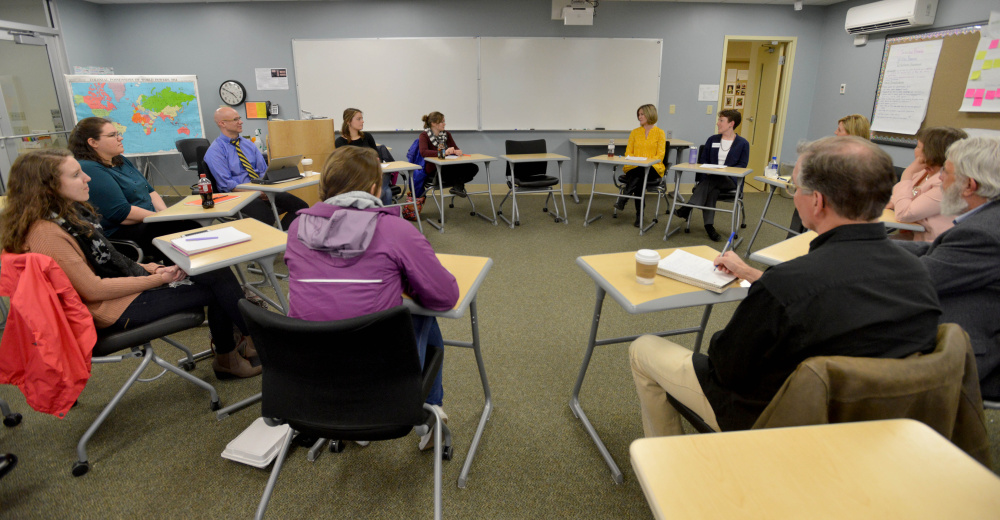
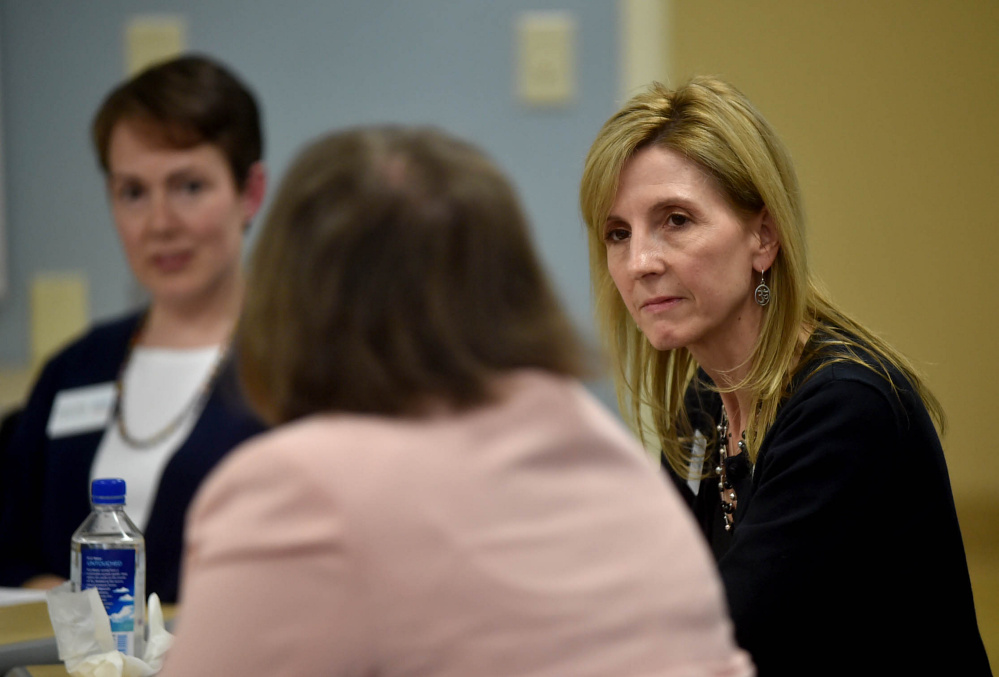
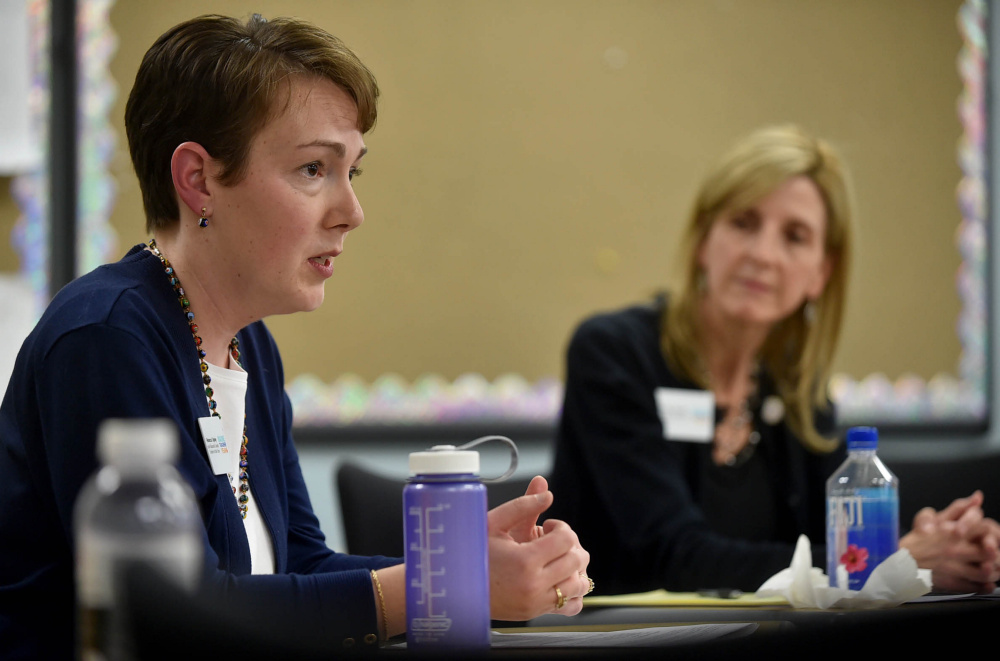
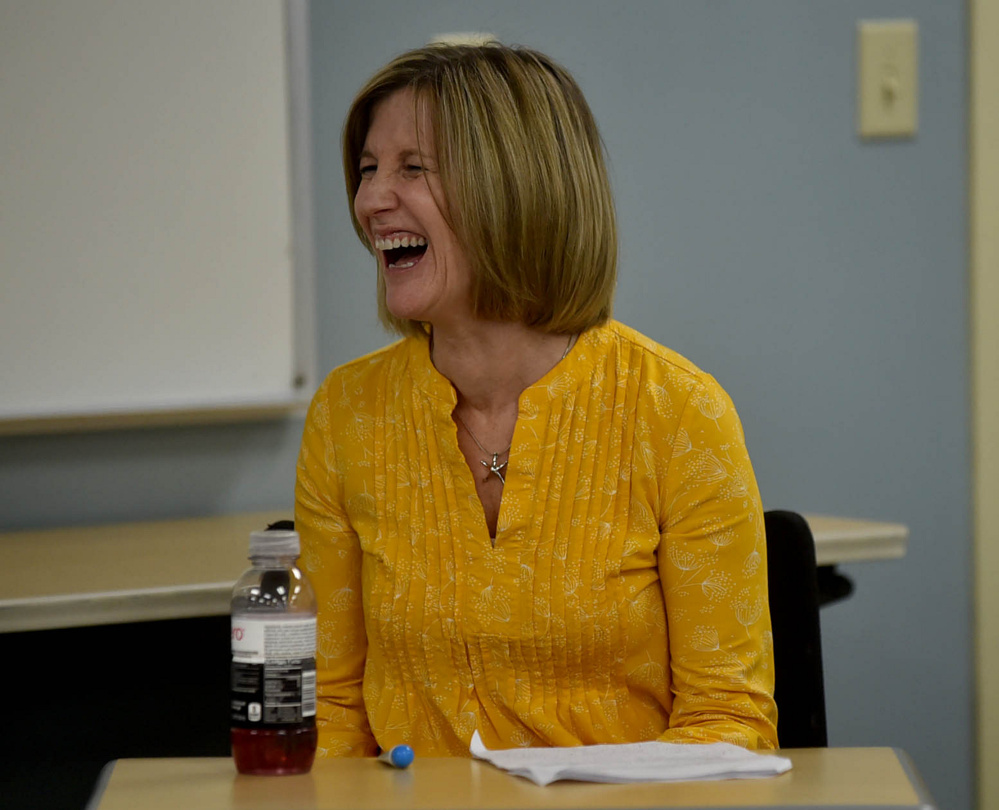
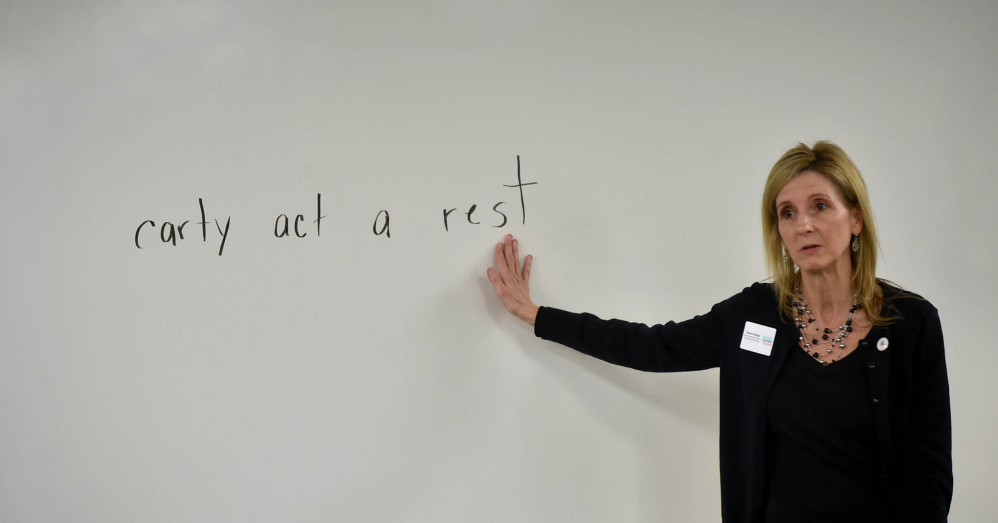
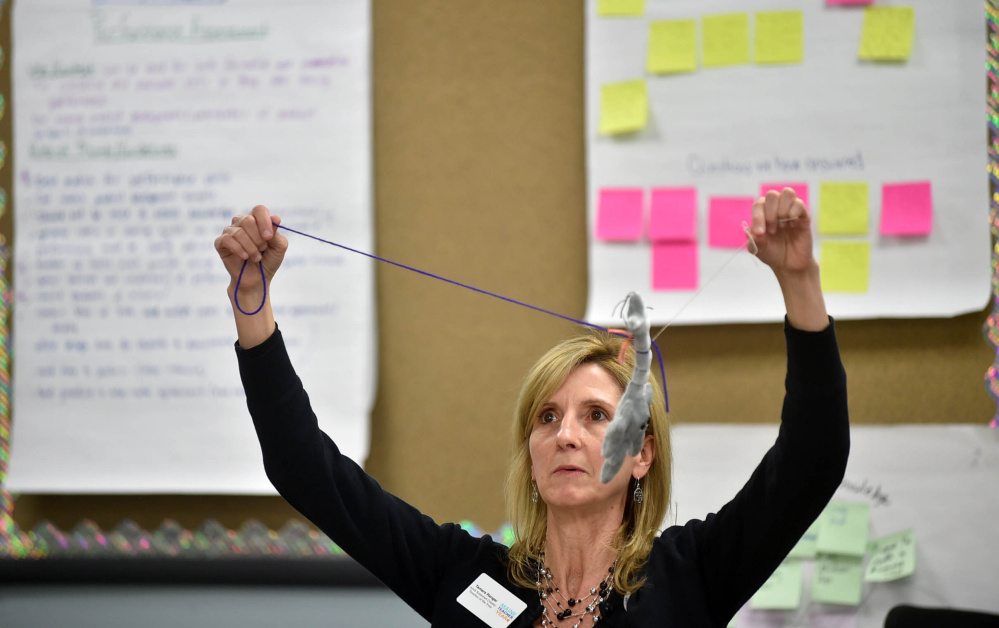

Success. Please wait for the page to reload. If the page does not reload within 5 seconds, please refresh the page.
Enter your email and password to access comments.
Hi, to comment on stories you must . This profile is in addition to your subscription and website login.
Already have a commenting profile? .
Invalid username/password.
Please check your email to confirm and complete your registration.
Only subscribers are eligible to post comments. Please subscribe or login first for digital access. Here’s why.
Use the form below to reset your password. When you've submitted your account email, we will send an email with a reset code.